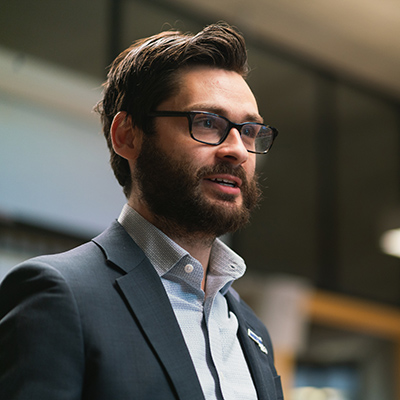
Matt Casale
Former Director, Environment Campaigns, PIRG
One of the simplest, most effective ways our institutions can curb plastic pollution is to lead by example.
Former Director, Environment Campaigns, PIRG
Every 15 and a half hours, Americans throw out enough plastic to fill the largest NFL stadium in the country, and the pile grows larger every year.
As one of the biggest contributors to our planet’s plastic waste crisis, our country needs to do everything it can to reduce our consumption of plastic — and especially the single-use plastics that we just don’t need.
One way our federal government can act right now? By phasing out its own purchase of plastic bags and other single-use plastic products.
The U.S. government is the single largest purchaser of consumer goods and services in the world, spending $650 billion per year. The goods it purchases include a mountain of plastic products — the single-use plastic bags, utensils, straws, bottles, packaging and other single-use items purchased for use in government buildings and at official events.
By wielding its purchasing power more responsibly — phasing out the purchase of all these single-use plastics — the federal government can make a dent in our country’s overall plastic consumption.
Right now, the Goods and Services Administration (GSA) is reviewing a proposal that would do just that. We can’t miss any opportunity to take a bite out of our growing plastic waste crisis.
Given that the lifespan of a single plastic bag is 1,000 years and doesn’t ever fully degrade, this kind of regulation is long overdue. That’s why we’re calling on the GSA to reduce the amount of plastic it purchases for the federal government.
Former Director, Environment Campaigns, PIRG